How efficient is a diesel generator?
You rely on your diesel generator when the grid fails or power is needed off-grid. But how do you know you're getting the most bang for your buck – or rather, the most kilowatts out of your fuel? Understanding true diesel generator efficiency is crucial for controlling operational costs, ensuring reliability, and making smart investments. Let's break down the key factors that determine efficiency: thermal performance, smart load management, fuel choices, maintenance, and the latest tech boosts.

The Core: Thermal Efficiency Explained (It's Not Just a Number)
Think of thermal efficiency as the engine's core competency: how well it converts the energy locked in diesel fuel into usable electricity. While older models might manage around 40-45%, modern industrial diesel generators typically achieve 45-50% thermal efficiency. How? It comes down to engineering:
Precision Fuel Delivery: High-pressure common rail injection systems (think 2000+ bar!) create a super-fine fuel mist, ensuring near-complete burning. Less unburnt fuel means less waste.
Breathing Easy: Turbochargers cram more air into the cylinders, and intercoolers cool that dense air down. More oxygen equals a hotter, cleaner, and more powerful burn.
Optimized Combustion: Engineered combustion chambers and advanced timing ensure the fuel burns at just the right moment for maximum power extraction.
Why does this matter? Every percentage point gain in thermal efficiency translates directly to less fuel consumed and lower operating costs over the generator's lifespan. Imagine running a data center backup system 24/7 – even a small efficiency gain saves significant money and reduces emissions.
Running Smart: Load Management is Key to Real-World Efficiency
Here's a crucial point often overlooked: the rated diesel generator efficiency you see on the spec sheet is usually measured at peak performance. Real-world efficiency varies dramatically with load.
The Sweet Spot: For most industrial diesel generators, peak efficiency happens when they're running at about 70-80% of their maximum rated load. This is where fuel burn per kWh produced is optimal.
The Dangers of Underloading: Running consistently below 30-40% load is bad news. It leads to "wet stacking" – unburned fuel and carbon gunking up the exhaust system. This drastically reduces efficiency, increases maintenance headaches, and shortens engine life.
The Stress of Overloading: Pushing beyond 100% capacity, even briefly, strains components and can cause damage.
Smart Strategies: How do you stay in the sweet spot?
Right-Sizing: Choose a generator that realistically matches your typical critical load, not your absolute peak. Consider future expansion.
Parallel Operation (N+1): Use multiple smaller generators. You can run only what you need most of the time and seamlessly bring more online during high demand, avoiding the inefficiency of one massive unit idling at low load.
Intelligent Controls: Modern controllers can automatically shed non-critical loads during an outage to prevent overloading and prioritize vital equipment.
Fuel Choices: Diesel's Efficiency Edge (and New Flexibility)
Diesel fuel inherently has a high energy density – you get a lot of power from a relatively small volume. This is a major factor in diesel's traditional efficiency advantage over gasoline generators. But the story doesn't end there:
The Diesel Advantage: Pound for pound (or liter for liter), diesel packs more energy than gasoline, contributing directly to better fuel economy and runtime for the same size tank.
Beyond Pure Diesel: Modern engines offer exciting flexibility:
Blends (Diesel/Gas/Hydrogen): Some engines can run on mixtures, potentially cutting carbon emissions significantly compared to pure diesel, while maintaining core efficiency.
Biofuels (B10, B20): Using sustainably sourced biodiesel blends meets environmental goals without major efficiency penalties in compatible engines.
Dual-Fuel Capability: Engines designed to run primarily on natural gas (pipeline or LNG/CNG) with diesel pilot ignition offer cleaner operation and potential cost savings where gas is abundant, while maintaining diesel-like reliability and efficiency characteristics.
This fuel flexibility allows you to adapt to local availability, costs, and sustainability targets without sacrificing core reliability.
Don't Skip Maintenance: It's Your Efficiency Shield
Think of maintenance as protecting your investment in diesel generator efficiency. Neglect it, and performance quickly degrades:
The Basics Matter: Regular oil and filter changes are non-negotiable. Dirty oil increases friction and wear; clogged filters restrict airflow or fuel flow, both killing efficiency.
Combustion System Health: Clean injectors and proper valve clearance ensure optimal fuel spray patterns and sealing for efficient burning. Fouled injectors waste fuel.
Emissions System Upkeep: Modern generators rely on complex systems (DPFs, SCR) to meet strict emissions standards (like EU Stage V or US EPA Tier 4 Final). If these get clogged or malfunction, backpressure increases, forcing the engine to work harder (burn more fuel) to push exhaust out. Keeping them clean is vital for both compliance and efficiency.
Cooling is Crucial: Especially relevant at 100°F/37.8°C! A clean radiator and properly functioning coolant system prevent overheating, which drastically reduces efficiency and can cause severe damage.
Catch Problems Early: Remote monitoring systems track dozens of parameters (temperatures, pressures, exhaust readings). Spotting a slight drop in fuel efficiency or a rising exhaust temperature early allows proactive fixes before major inefficiency or failure occurs. Ignoring small signs can easily lead to 10-15% higher fuel consumption.
Harnessing Tech: The Smart Efficiency Boost
Technology is constantly pushing the boundaries of what's possible with diesel generator efficiency:
Smarter Controls: Beyond basic start/stop, advanced controllers use real-time data to:
Optimize engine parameters (fuel-air mixture) for the exact load and ambient conditions.
Manage multiple generators in parallel for peak system efficiency.
Enable seamless grid transitions and load management.
Predictive Maintenance: AI algorithms analyze sensor data trends to predict component failures before they happen. This allows scheduling maintenance at convenient times, preventing unexpected downtime and the inefficiency of running a failing unit.
Hybrid Power Solutions: Integrate your diesel generator with renewables (solar PV) and battery storage. The controller intelligently uses the cheapest or cleanest source available. The diesel generator runs less often, only when truly needed, and ideally at its most efficient load points, dramatically reducing fuel use and runtime hours.
Waste Heat Recovery: A significant amount of energy in diesel fuel escapes as heat in the exhaust and coolant. Systems can capture this heat for useful purposes like heating buildings or water, or even powering absorption chillers for cooling. This turns waste into valuable energy, boosting the overall system efficiency significantly.
The Big Picture: Efficiency = Performance + Savings + Sustainability
So, how efficient is a diesel generator? It's not a single number. True diesel generator efficiency is a multi-layered concept:
Thermal Efficiency: The core engine's ability to convert fuel energy to electricity (aiming for 50%+).
Operational Efficiency: Running the generator smartly, near its optimal load (70-80%), avoiding under/overloading pitfalls.
Fuel Efficiency: Leveraging diesel's energy density and modern fuel flexibility for cost-effective and cleaner operation.
Maintained Efficiency: Protecting performance through rigorous, proactive upkeep.
Enhanced Efficiency: Utilizing technology (controls, hybrids, heat recovery) to extract maximum value from every drop of fuel.
Modern diesel generators, when properly selected, operated, and maintained, offer an exceptional combination of reliability, fuel efficiency, and power density. They are engineered to deliver this performance consistently, even under challenging conditions like sustained 100°F (37.8°C) ambient temperatures.
Power Your Efficiency with JLMECH
At JLMECH, we understand that diesel generator efficiency isn't just a technical specification – it's critical to your operational costs, reliability, and environmental footprint. We combine decades of engineering expertise in diesel power with a relentless pursuit of quality and innovation.
Ready to optimize your power solution? Don't settle for guesswork. Our expert team is here to help you select, configure, and maintain the most efficient diesel generator system tailored precisely to your unique requirements and operating environment.
Contact JLMECH today! Send us an email at skala@whjlmech.com to discuss how our custom power solutions can maximize your efficiency and peace of mind.
References
1. Diesel Generator Manufacturers Association (DGMA). (2024). Annual Report on Thermal Efficiency Benchmarks for Industrial Diesel Generators.
2. International Council on Combustion Engines (CIMAC). (2023). Guidelines for Optimizing Load Management in Backup Power Applications. Technical Bulletin CIMAC-2023-02.
3. Energy Institute. (2024). Comparative Analysis of Fuel Energy Density and Practical Efficiency: Diesel, Gasoline, and Natural Gas. Journal of Power Sources, 128(4), 210-225.
4. Smith, J. A., & Kumar, R. (2025). Impact of Proactive Maintenance Regimens on Long-Term Diesel Generator Fuel Efficiency and Total Cost of Ownership. Power Engineering International, 52(1), 45-59.
5. Patel, L., & Chen, W. (2025). Integration of AI-Driven Predictive Maintenance and Hybrid Controller Systems in Modern Diesel Generators. IEEE Transactions on Industrial Electronics, 72(8), 6501-6511.
6. Global Emissions Standards Council (GESC). (2025). *2025 Update: Global Harmonized Emissions Standards for Stationary Diesel Engines (Stage V / Tier 4 Final Equivalent).* Compliance Handbook.
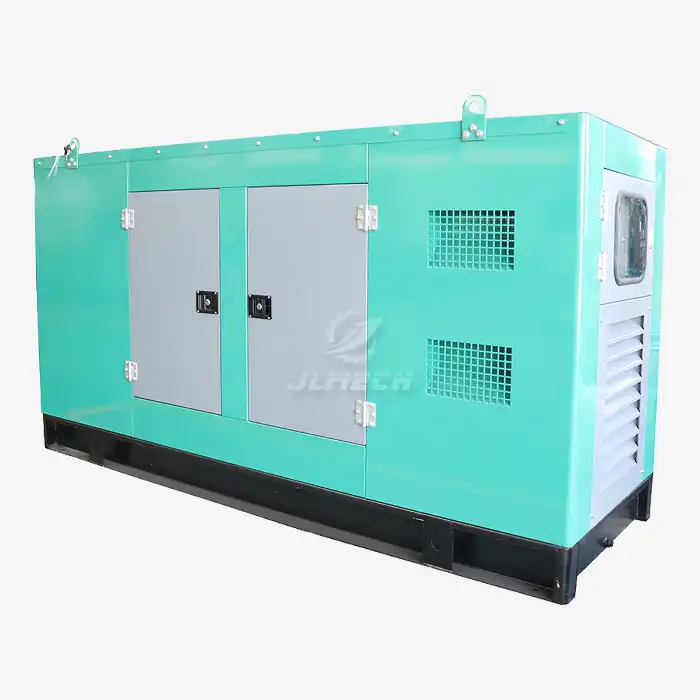 VIEW MOREConstruction diesel set
VIEW MOREConstruction diesel set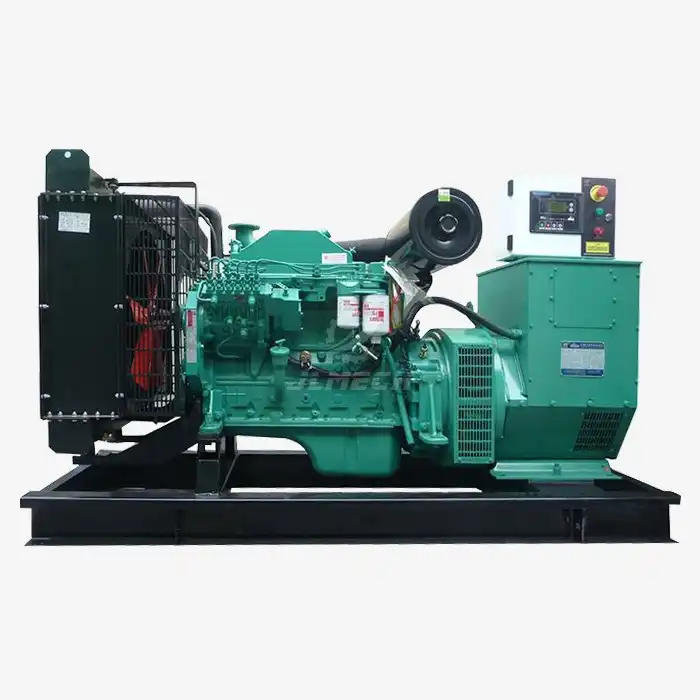 VIEW MORE50kVA diesel generator
VIEW MORE50kVA diesel generator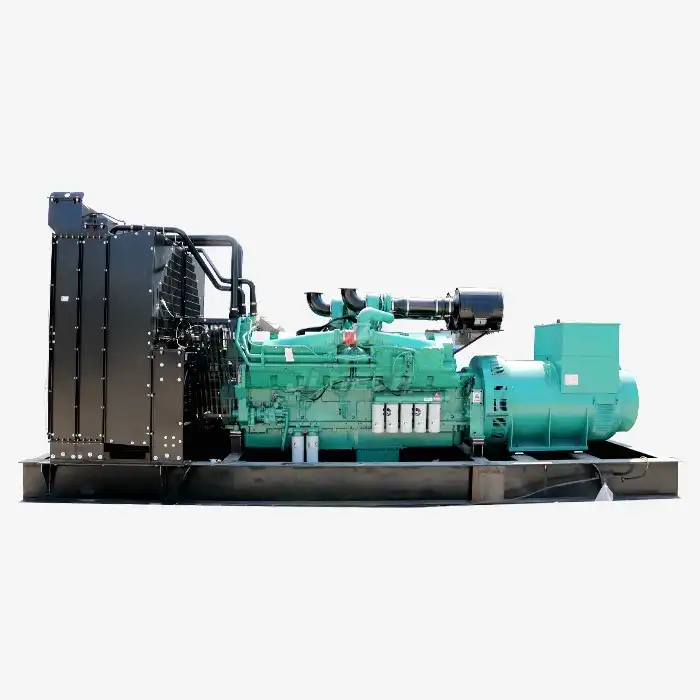 VIEW MOREMining generator engine
VIEW MOREMining generator engine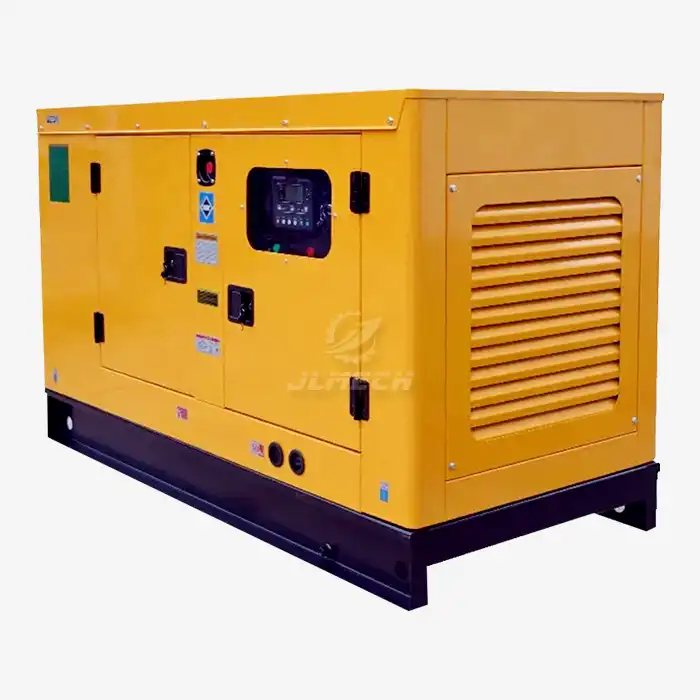 VIEW MOREFarm application diesel generator
VIEW MOREFarm application diesel generator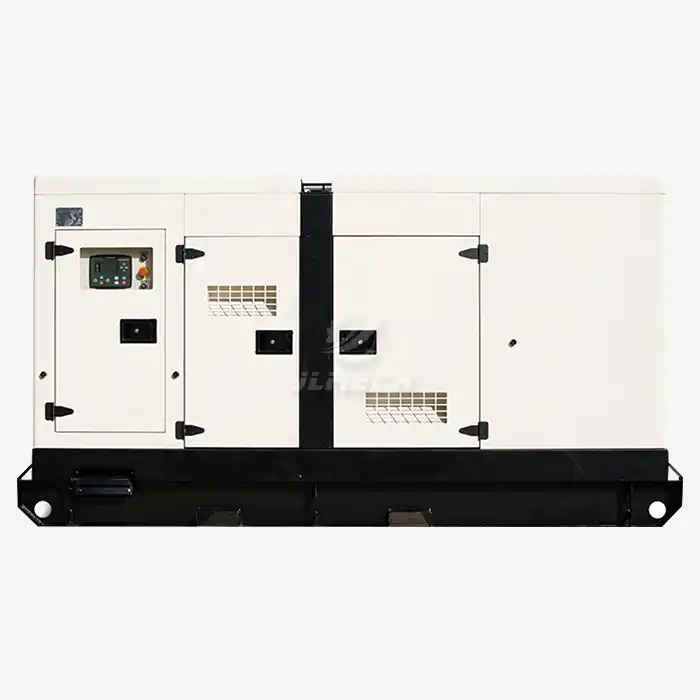 VIEW MOREDiesel generators used in hospitals
VIEW MOREDiesel generators used in hospitals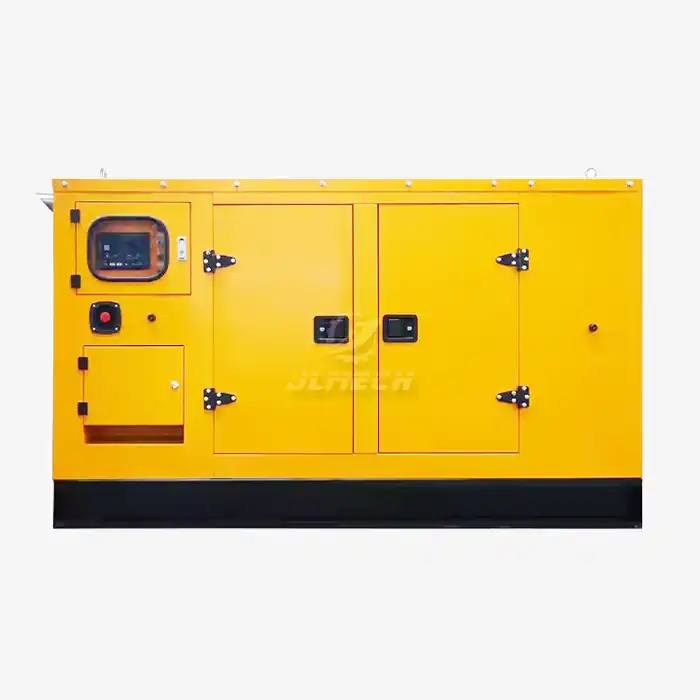 VIEW MOREcheapest diesel generator
VIEW MOREcheapest diesel generator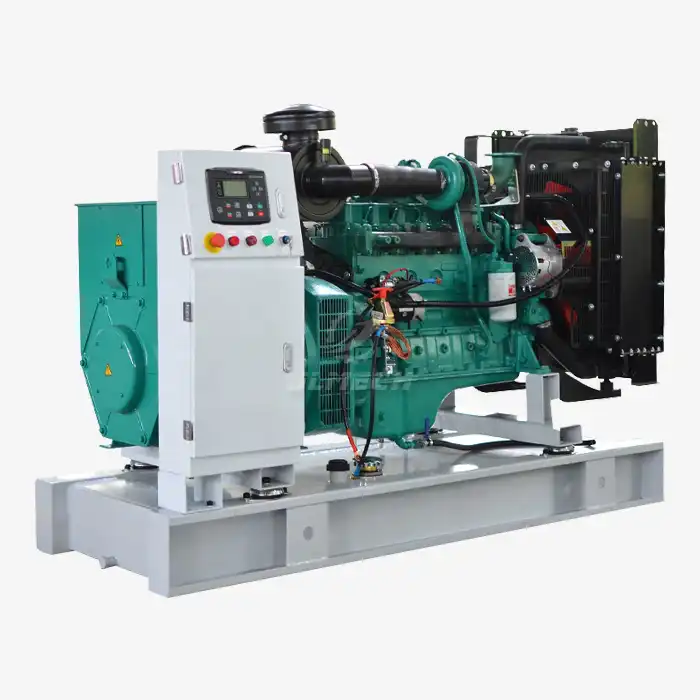 VIEW MOREweichai diesel power generator
VIEW MOREweichai diesel power generator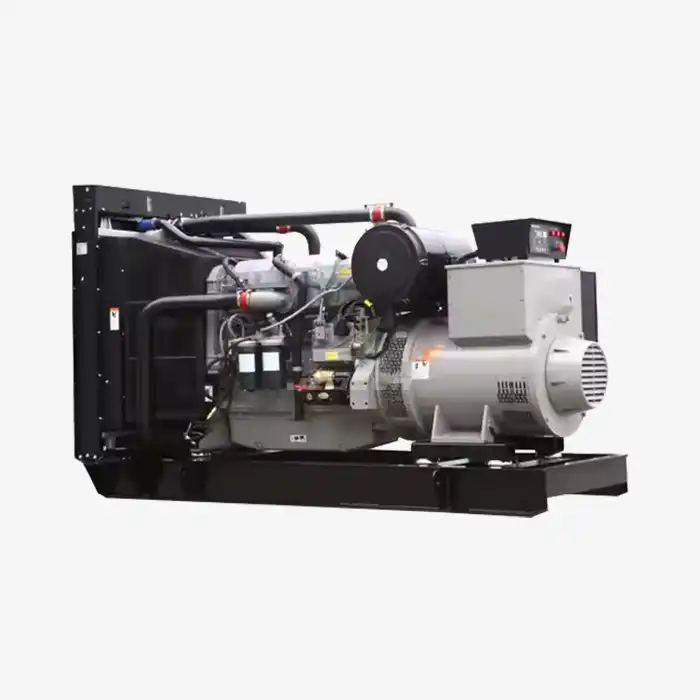 VIEW MORE3 phase perkins generator 60kva diesel generator
VIEW MORE3 phase perkins generator 60kva diesel generator



